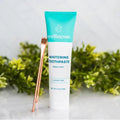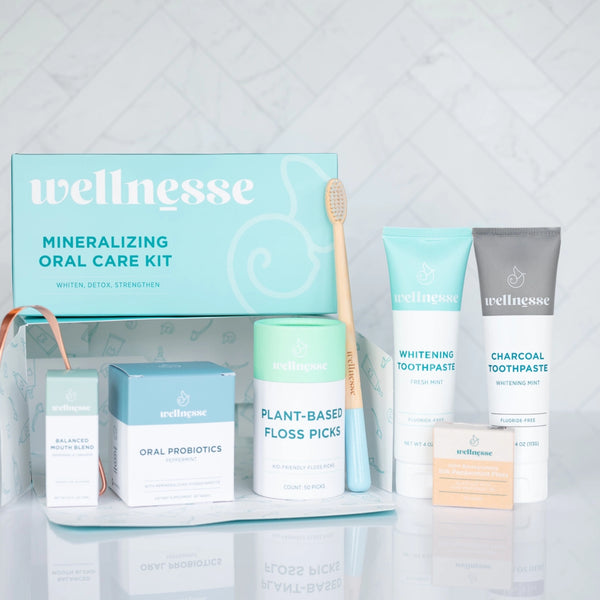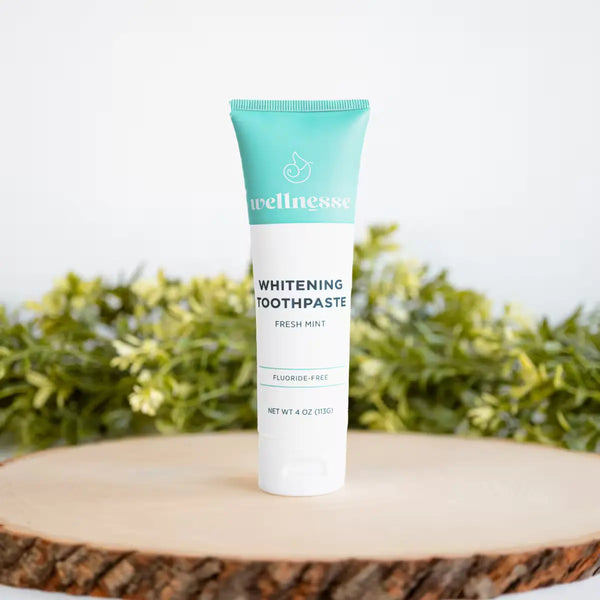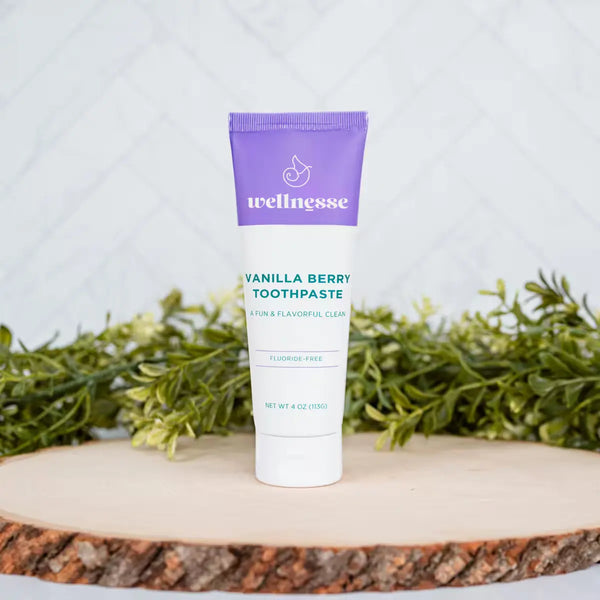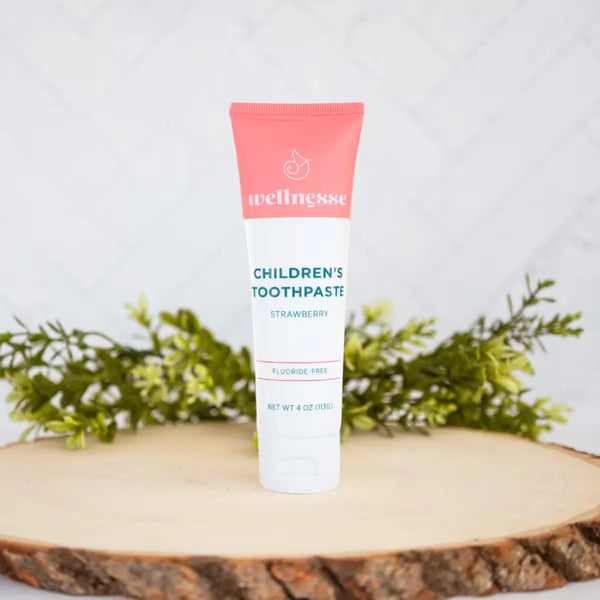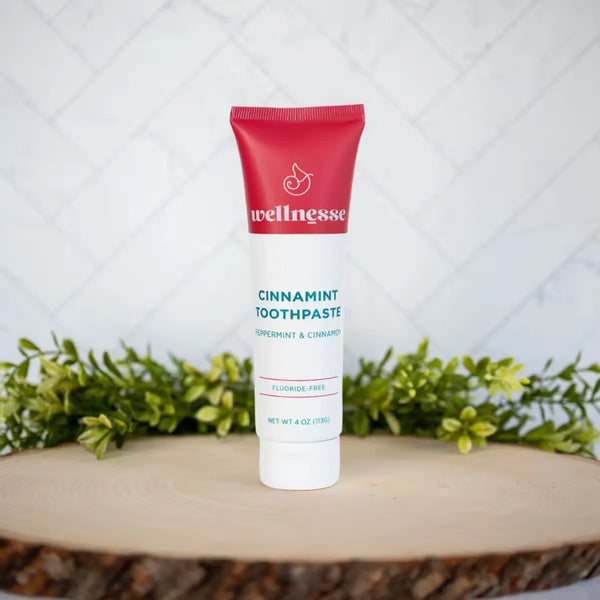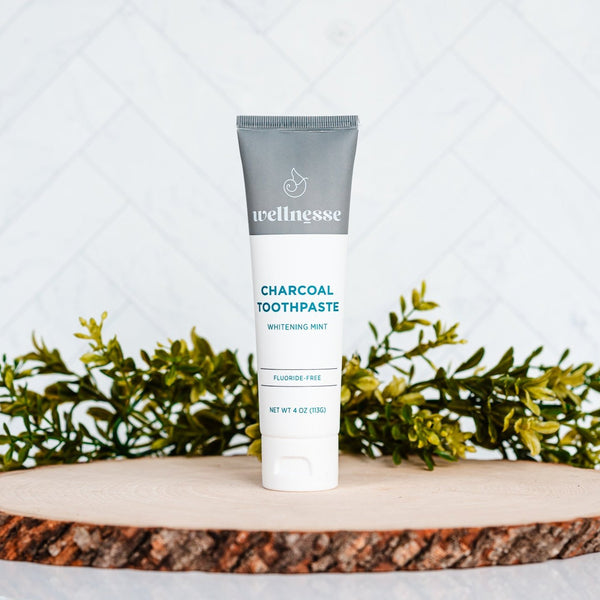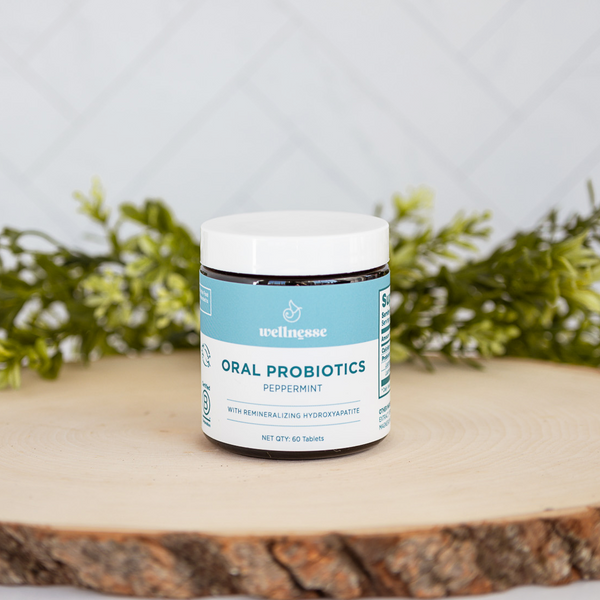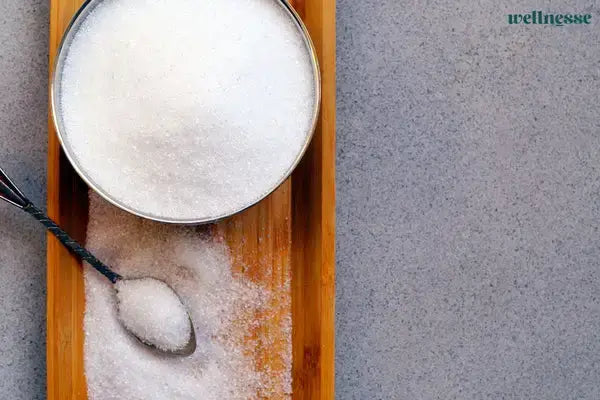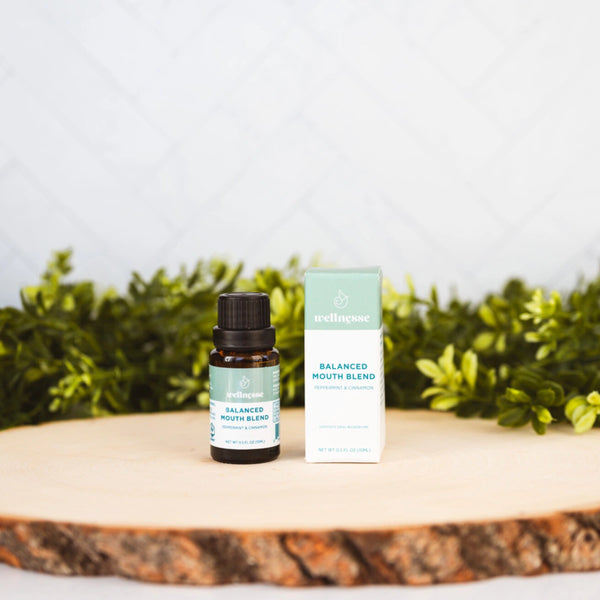Have you heard of xylitol? In recent years, it has gained popularity as an ingredient in natural toothpaste brands… and for good reasons. Beyond its ability to sweeten things, xylitol has many benefits to our oral health. It’s an important ingredient you want in your natural toothpaste!
What is Xylitol?
Xylitol is a naturally occurring sugar alcohol that is in some fruits and vegetables. It’s often extracted from corn and the bark of birch trees. It tastes sweet like sugar. However, it contains significantly fewer calories and has a low glycemic index, which makes it a popular sugar substitute.
Xylitol is becoming increasingly popular for its role in oral health, particularly toothpaste. It offers many benefits to our teeth, oral microbiome, and remineralization of teeth.
Similar to reading food labels, it is important to know what and where your toothpaste ingredients are sourced from. Some brands use xylitol from genetically modified corn, but this can lead to a host of health problems. You want to find a toothpaste that uses natural xylitol. At Wellnesse, our xylitol is sourced from birchwood and we do not use any ingredients that are genetically modified.
Benefits of Xylitol in Oral Health
Research continues to reveal the many benefits of using xylitol in oral care products. It helps with balancing our oral microbiome and pH levels to reducing bacteria and remineralizing teeth. All of which are important aspects of good oral health.
1. Reduces Bacteria that Cause Cavities
One of the most profound benefits of using xylitol in toothpaste is that it can reduce cavity-causing bacteria. Streptococcus mutans (S. mutans) is one of the major bacteria that causes tooth decay. These bacteria need sugar to survive, and they can’t break down xylitol or use that as their "food". In addition, xylitol makes it hard for the bacteria to stick to your teeth.
When you use toothpaste with xylitol, it prevents the bacteria from building up or sticking to your teeth. This study showed that xylitol can significantly reduce S. mutans in the mouth. This bacteria can be harmful, as it is the main contributor to tooth decay and cavities and you want to avoid
2. Helps Remineralize Our Teeth
This 2014 study shows that xylitol doesn’t just prevent cavities — it also helps with remineralization, or the healing of cavities. Because there’s no sugar in the toothpaste for bacteria to feed off of, you’ll have less plaque and bacteria. That means our teeth have a lower chance of getting cavities. Xylitol also increases saliva that contains important remineralization minerals (calcium and phosphate).
3. Promotes an Alkaline pH Level in the Mouth
Maintaining a neutral pH in the mouth is crucial for preventing tooth decay. When we eat sugary or acidic foods, our oral pH becomes more acidic. The more acidic your mouth is, the more the bad bacteria can thrive and grow. Xylitol helps neutralize the acids and create a more alkaline pH in the mouth. It also increases saliva production, which means a more alkaline pH as well. Having a more alkaline pH means less tooth decay and demineralization.
4. Helps Alleviate Symptoms of Dry Mouth
Many people suffer from dry mouth. This can be caused either from medication, health conditions, or lifestyle factors. This can lead to an increased risk of cavities and gum disease since saliva plays a crucial role in oral health. Xylitol can help stimulate saliva production, and the more saliva provides moisture and protection for the teeth and gums.
5. Creates a Healthy Oral Microbiome
Our oral microbiome is an important component in our oral health and the overall health of our bodies. Just like the gut microbiome, our oral microbiome needs a balance between good and bad bacteria. Because xylitol helps reduce any overload of bad bacteria, it naturally balances the oral microbiome. In addition, because it increases saliva production, it promotes a healthier oral microbiome.
Xylitol in Toothpaste
When included in toothpaste, xylitol provides both immediate and long-term benefits. The sweet taste enhances the flavor of the toothpaste without adding food for bacteria (like sugar does). But its benefits go beyond that.
- Bacterial Inhibition: Xylitol reduces the impact of harmful bacteria in the mouth. It reduces the bacteria’s ability to form biofilms (plaque) and produce acids. This causes fewer cavities to form.
- Saliva Stimulation: Brushing with xylitol toothpaste can help stimulate saliva flow. This creates a neutral pH and balances the microbiome.
- Mineral Delivery: Xylitol’s ability to increase saliva flow and promote remineralization creates a powerful combination for protecting and repairing tooth enamel. This helps heal cavities that are present and strengthens teeth to reduce cavities.
Xylitol Plus Hydroxyapatite
By itself, xylitol is an important ingredient in natural toothpaste. But combining it with hydroxyapatite (a naturally occurring mineral that makes up our bones and teeth) makes it even more powerful.
Hydroxyapatite is a form of calcium apatite and our tooth enamel is made of 95% hydroxyapatite! This mineral is amazing and it gets into the tiny crevices of your teeth to fill the cracks (where cavities form) to strengthen and repair teeth… without the use of fluoride.
Hydroxyapatite and xylitol create a powerful combination that helps strengthen and remineralize teeth. Together these ingredients eliminate harmful bacteria, increase saliva production, balance the oral microbiome, and fill in those tiny cracks in the enamel layer of your teeth.
Choosing Xylitol Toothpaste
Are you ready to add xylitol to your oral hygiene routine? If so, make sure you don't just pick any toothpaste that contains it. Before buying a xylitol toothpaste, look at the ingredient list and make sure it's one of the first ingredients listed. This means there's a higher concentration of xylitol in the toothpaste so you'll get more benefit for it.
Another thing to be aware of is the source of xylitol. To make sure you’re using the most natural and clean toothpaste, seek out those brands that source xylitol from birchwood. Last, check for other beneficial ingredients, such as hydroxyapatite. It works synergistically with xylitol to provide comprehensive cavity protection.
It’s also wise to consider the overall formulation of the toothpaste. Many xylitol-containing toothpastes are also free from artificial additives, sulfates, and parabens. This makes them a healthier choice for your oral care. And last, choosing Wellnesse toothpaste with xylitol means you’re getting the best version available.
Wellnesse Xylitol + Hydroxyapatite Toothpaste
Wellnesse offers several toothpaste versions with xylitol for your oral care routine. Our
Whitening Toothpaste, Charcoal Toothpaste and Cinnamint Toothpaste are great options to strengthen and whiten your teeth. And we didn’t forget about the kids! Our Children’s Strawberry Toothpaste gives kids a great tasting toothpaste. Plus the powerful benefits of xylitol build a healthy mouth from a young age.
Incorporating xylitol into your toothpaste is an easy step toward better oral health. Its ability to decrease harmful bacteria, promote remineralization, balance pH levels, stimulate saliva production, and balance the oral microbiome makes it an important ingredient in oral health products. With the added benefits of being a natural and safe alternative to conventional sweeteners, xylitol provides an excellent way to enhance your dental hygiene routine.
